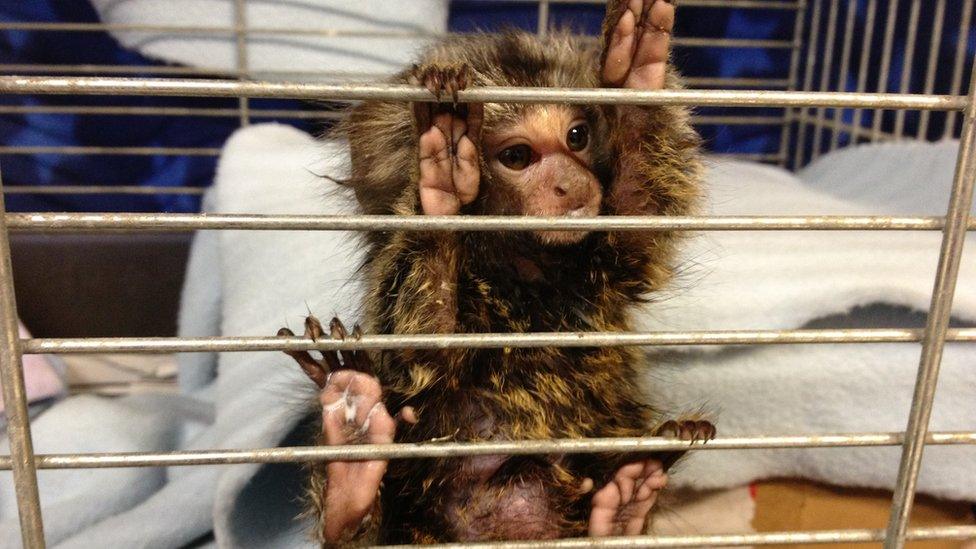Rhondda couple given 10-year pet ban for monkey cruelty
- Published
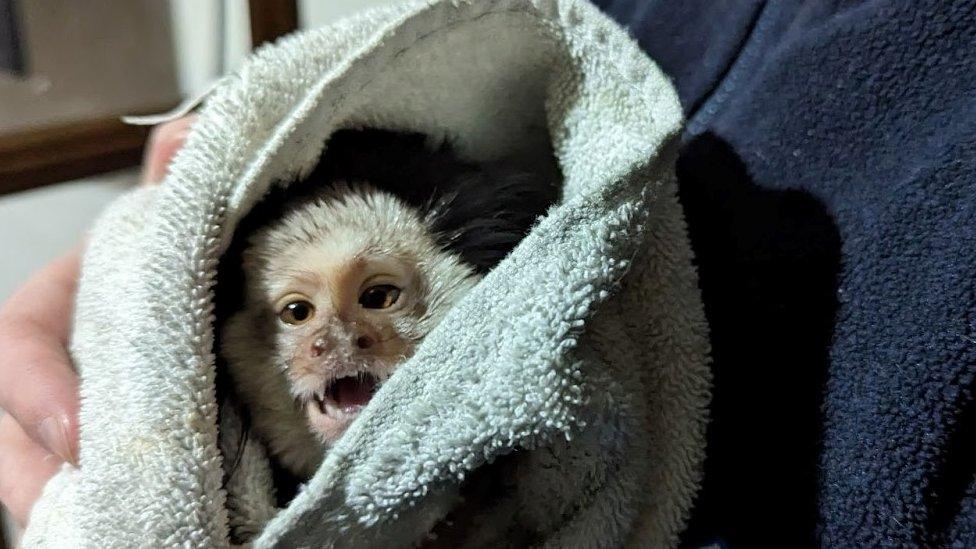
Precious was about 18 months old, according to her owners
A marmoset was found screaming and unable to walk after its owners failed to look after her properly.
When the RSPCA took Precious to the vet it was discovered she had severe metabolic bone disease and the white-faced marmoset had to be put down.
Her owners admitted two Animal Welfare Act at Merthyr Tydfil Magistrates' Court on 27 September.
Jonathan Phillips, 54, and Laura Pittman, 52, did no research about how to care for Precious before buying her.
They fed her the wrong food and the space at their home on Brynhyfryd Terrace in Ferndale, Rhondda Cynon Taf, was inadequate for a marmoset, the court heard.
When Gemma Cooper, deputy chief inspector for the RSPCA, was called to the home she saw Precious "screaming and rolling around in a chaotic and unpredictable manner and unable to walk".
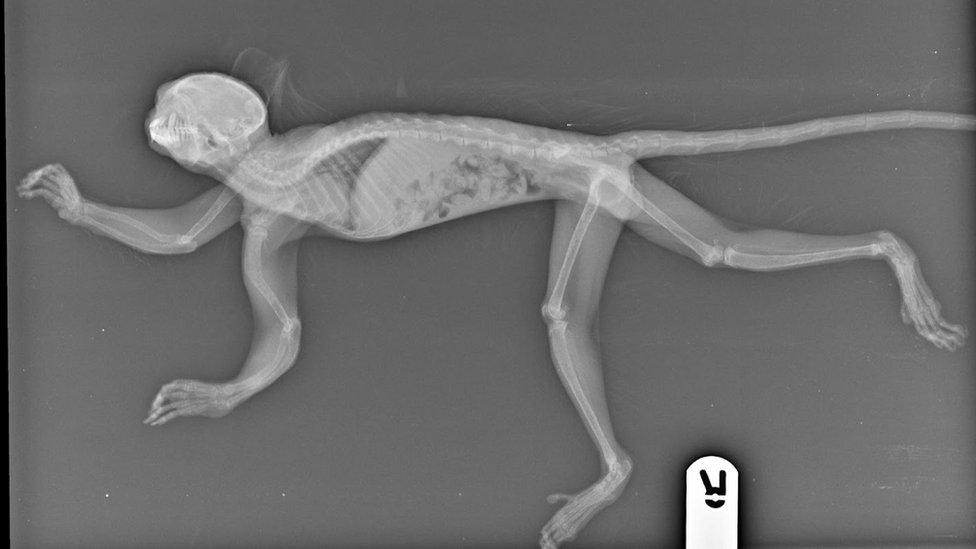
The RSPCA said Precious was given no vitamin supplements or UV light which maintain bone health
A written vet report said Precious was "dragging herself" and was "unable to climb or leap".
A radiograph revealed the monkey had severe metabolic bone disease - a disease which develops when an animal becomes deficient in calcium and/or vitamin D3.
Precious was thought to have been fed yoghurt, fresh and dried fruit and mealworms when she needed "live insects, fresh fruit and vegetables and gum arabic".
The court also heard the monkey was kept alone despite her species having complex social needs.
Phillips and Pittman were sentenced on 2 November and handed a 12-month community order with 10 days rehabilitation activity requirement.
They were both fined £350 and ordered to pay a £140 victim surcharge.
Phillips was also ordered to pay £966.71 costs and Pittman was ordered to pay £965.21 and the couple were also banned from owning animals for 10 years.
Following sentencing, Ms Cooper said it was a "really sad story of a people buying an exotic animal on a whim and not knowing how to meet their needs".
Dr Ros Clubb, the RSPCA's head of wildlife, said marmosets were "wild animals that do not belong in people's homes".
- Published25 April 2019
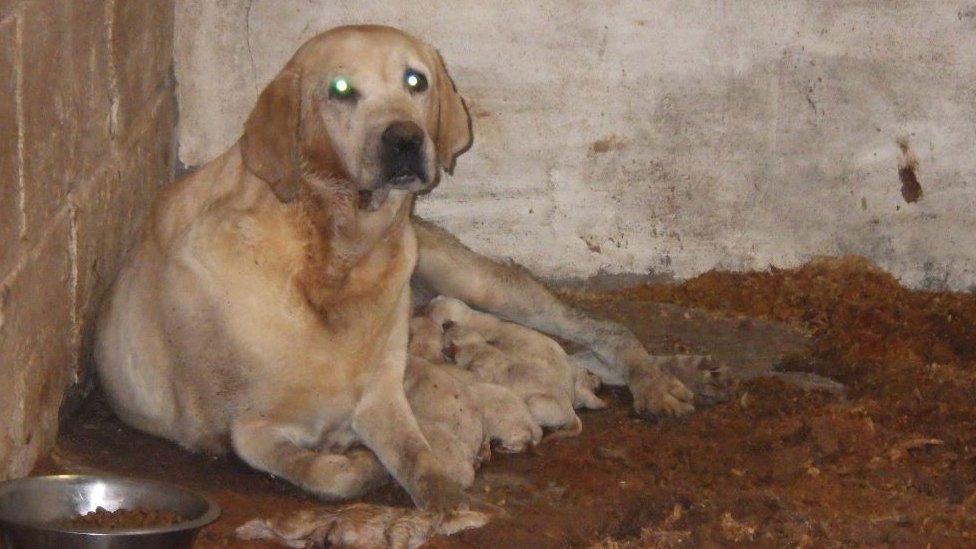
- Published19 April 2023
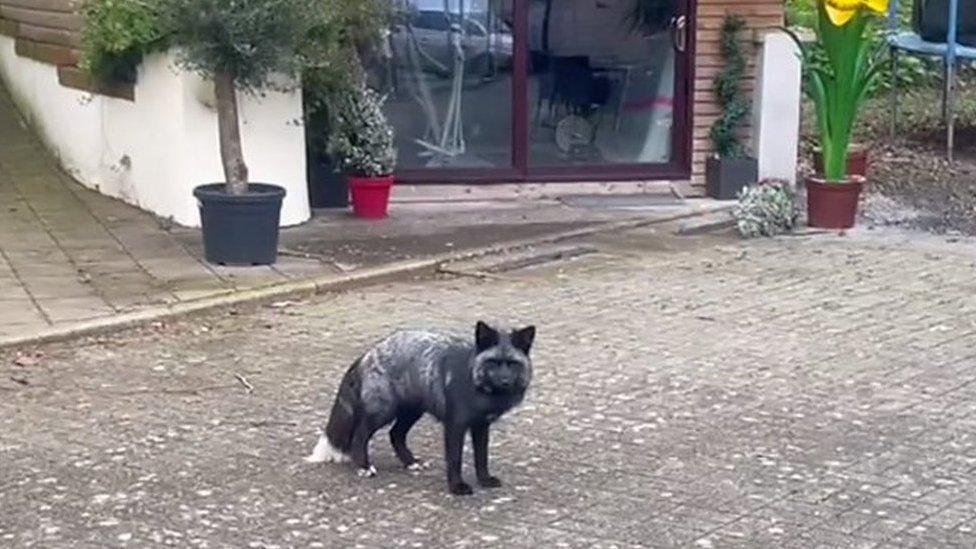
- Published18 July 2023
